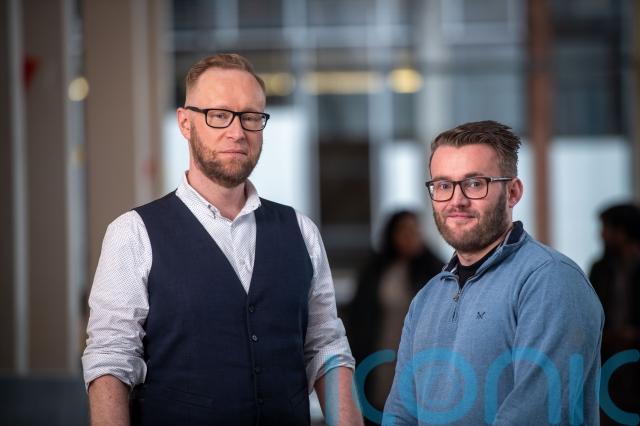
Men experiencing domestic violence within same-sex relationships face barriers in accessing support despite one in four reporting abuse in the past year, research suggests.
An evidence briefing by Glasgow Caledonian researchers will be presented to Holyrood later this month based on the findings on intimate partner violence in gay and bisexual men.
Some of the men impacted told the university’s health psychology professors Jamie Frankis and Steven Maxwell of the stigma around their abuse, which means police did not take it seriously.
Intimate partner violence (IPV) comprises of multiple types of abuse, including physical, sexual, social and mental health harm.
It can include violence, sexual coercion, psychological abuse and controlling behaviours, and it can be experienced from casual or one-off partners as well as regular or ex-partners.
The study found most gay and bisexual men who took part in the research described experiencing coercive control with emotional, physical and financial abuse.
It also contributed to short and long-term mental illness among victims, including anxiety, depression and post-traumatic stress disorder, the research said.

One participant said: “There’s a huge stigma around men coming out as domestic abuse victims, because we’re men, we should be able to deal with it and fight back.”
Another said: “The police do not take it seriously. I think it was a complete lack of training. They didn’t know how to treat it because it was man-on-man. There’s just a complete lack of empathy or understanding from the police about same-sex relations.”
The evidence briefing for ministers makes recommendations to improve support and understanding of IPV experienced by gay and bisexual men.
It comes as the research found a common view that statutory services are not designed to support those in same-sex relationships and the wider LGBTQ+ needs.
It found it is not uncommon for health and policing services to dismiss the experiences of gay and bisexual men as they perceive the abuse in a heterosexual dynamic which linked masculinity with the perpetrators.
Prof Frankis said: “The fact that one in four gay and bisexual men have recently experienced IPV and that they [are] as likely as heterosexual women to experience violence from their partners highlights how important this is, but we found that there are clear barriers for gay and bisexual victims to accessing support services and they are simply not set up to cope with gay and bisexual issues around IPV.”
Dr Maxwell, who is now based at Glasgow University, said: “IPV experienced by gay and bisexual men and wider LGBTQ+ folk is an issue that many are unaware of.
“We hope that this research will help bridge the knowledge gap, increase public awareness and lead to policy change at a national level.”
Detective Chief Superintendent Sam Faulds said: “Tackling domestic abuse remains a significant priority for Police Scotland. We take a victim centred approach and will respond to all reports.
“Whilst we recognise the disproportionate impact on women and girls, the definition of domestic abuse is not gender specific. It is a despicable and debilitating crime which affects all our communities and has no respect for ability, age, ethnicity, gender, race, religion or sexual orientation.
“Our officers are trained to respond professionally, sensitively and effectively to every victim. It is always disappointing to hear someone feels they have not had a good policing response but we welcome feedback from survivors, who are absolutely critical to helping us improve.
“We work closely with our partners, including organisations who support abused men in Scotland, to encourage reporting.
“Where we receive a report of domestic abuse, victims will be listened to, and it will be taken seriously and thoroughly investigated.
“I would encourage anyone who is or has been a victim of domestic abuse, or anyone concerned someone they know may be a victim, to contact Police Scotland either by phone, using our online form or to speak to one of our partner agencies.”
Subscribe or register today to discover more from DonegalLive.ie
Buy the e-paper of the Donegal Democrat, Donegal People's Press, Donegal Post and Inish Times here for instant access to Donegal's premier news titles.
Keep up with the latest news from Donegal with our daily newsletter featuring the most important stories of the day delivered to your inbox every evening at 5pm.